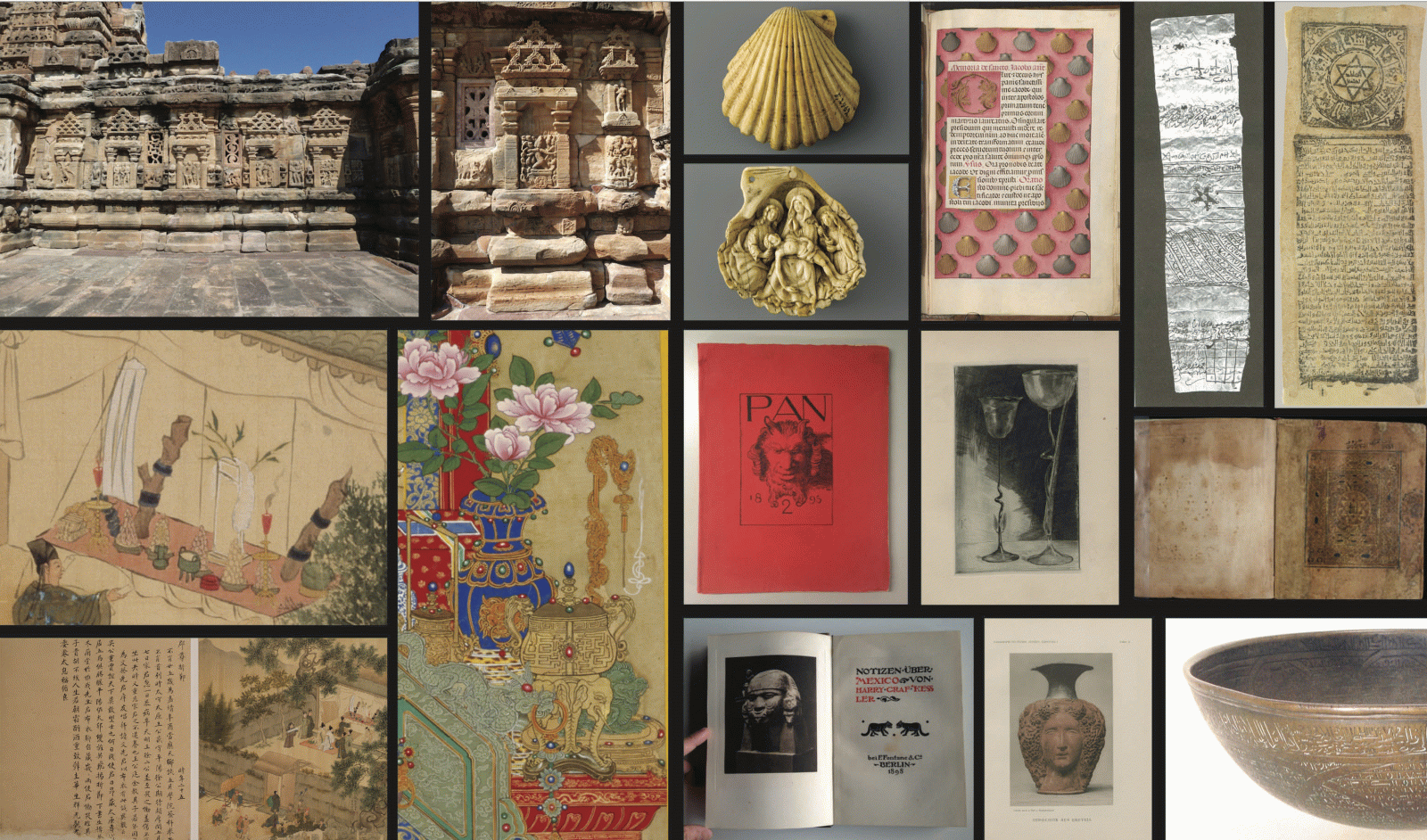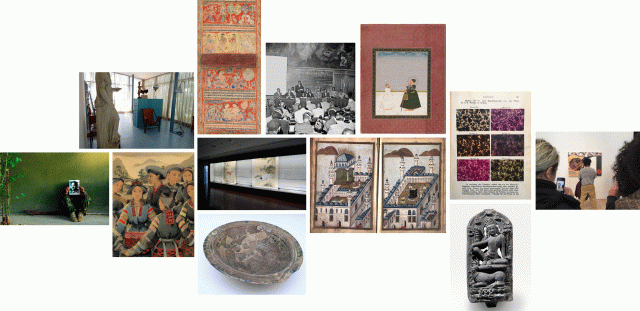Workshop
Sensate Art Histories - Challenges and New Perspectives

The objects of our study encompass amuletic Qur'an manuscripts; intricately carved medieval European ivories; 18th to 19th century East Asian incense burners; the 19th century German literary magazine Pan; and the stone inscriptions of Deccan India's temple makers. Participants in this transregional workshop have a shared interest in the aesthetic and material practices in which these objects were implicated, and in the multisensory experience of their contemporary receivers. We ask how the lens of the senses complements our understanding of print cultures and religious manuscripts, and we explore the intersensory perception of devotional objects and sacred spaces. On the one hand, we engage the materiality of small objects in close proximity to the body and on the other, the body's habitation of and circulation within monumental architectural spaces and sweeping landscapes. Whereas art historians have tended to privilege and fetishize the visual, we are interested in exploring sensory orders and sensory intersections within the historical moments of our study. We are concerned with the unique contribution that art history as a discipline with its attention to materiality and objecthood, whether of texts, things, or buildings, can make to sensory studies.
While remaining firmly grounded within the approaches of material studies, we invite exchanges with scholars working on sensory studies from a range of disciplinary perspectives including textual history, religion, literary and cultural studies, anthropology, and museum and curatorial studies. And because we intend to be attentive to the blind spots and challenges of this rapidly growing field, our main aim in this workshop is to both develop and interrogate methodologies. In so doing we hope to find ways of approaching the historical, cultural, and spatial specificity of the sensorium.
This is a joint workshop of the research and fellowship programs Connecting Art Histories in the Museum and Art Histories and Aesthetic Practices.
Please register in advance: arthistories@trafo-berlin.de
Keynote
Margrit Pernau: "Feeling the Garden: Sensory Experience between Materiality and Interpretation"
Margrit Pernau is Senior Researcher at the Center for the History of Emotions at the Max Planck Institute for Human Development in Berlin. She studied History and Public Law at the University of Saarland and University of Heidelberg. 1997-2003 Margrit Pernau conducted research in Delhi on the history of the Muslims of Delhi in the 19th century, which has resulted in the book Ashraf into Middle Classes. Muslims in 19th century Delhi came out with OUP in 2013. She has been research fellow at the Social Science Research Center Berlin, the Modern Orient Centre in Berlin, the Institute of Advanced Studies in Freiburg and the EHESS in Paris.
Papers
Alya Karame: "The Qur'an in the Realm of the Senses"
Discussants: Claus-Peter Haase (FU Berlin/ Museum of Islamic Art, Berlin) & Stephennie Mulder (University of Texas, Austin)
Max Koss: "Sensing Paper: Print Culture between Pleasure and Scandal in Fin-de-siècle Germany"
Discussant: Karsten Lichau (Center for the History of Emotions, Max Planck Institute for Human Development, Berlin)
Lucy Jarman: "In Contact: A Late Medieval Ivory Scallop and its Uses"
Discussant: Laura Otis (Emory University, Atlanta)
Ning Yao: "Decoding the Images: Space, Deity and Incense Burners"
Discussant: Birgitta Augustin (Museum of Asian Art, Berlin)
Subhashini Kaligotla: "Graphic Sense & the Medieval Indian Temple Maker"
Discussant: Kerstin Pahl (Center for the History of Emotions, Max Planck Institute for Human Development, Berlin)
Scarica
11 giugno 2018, ore 09:00
Villa Jaffé
Wissenschaftskolleg zu Berlin
Wallotstr. 10
14193 Berlin
Avviso
Questo evento viene documentato fotograficamente e/o attraverso riprese video. Qualora non dovesse essere d’accordo con l’utilizzo di immagini in cui potrebbe essere riconoscibile, da parte del Kunsthistorisches Institut in Florenz a scopo di documentazione degli eventi e di pubbliche relazioni (p.e. social media) la preghiamo gentilmente di comunicarcelo.




